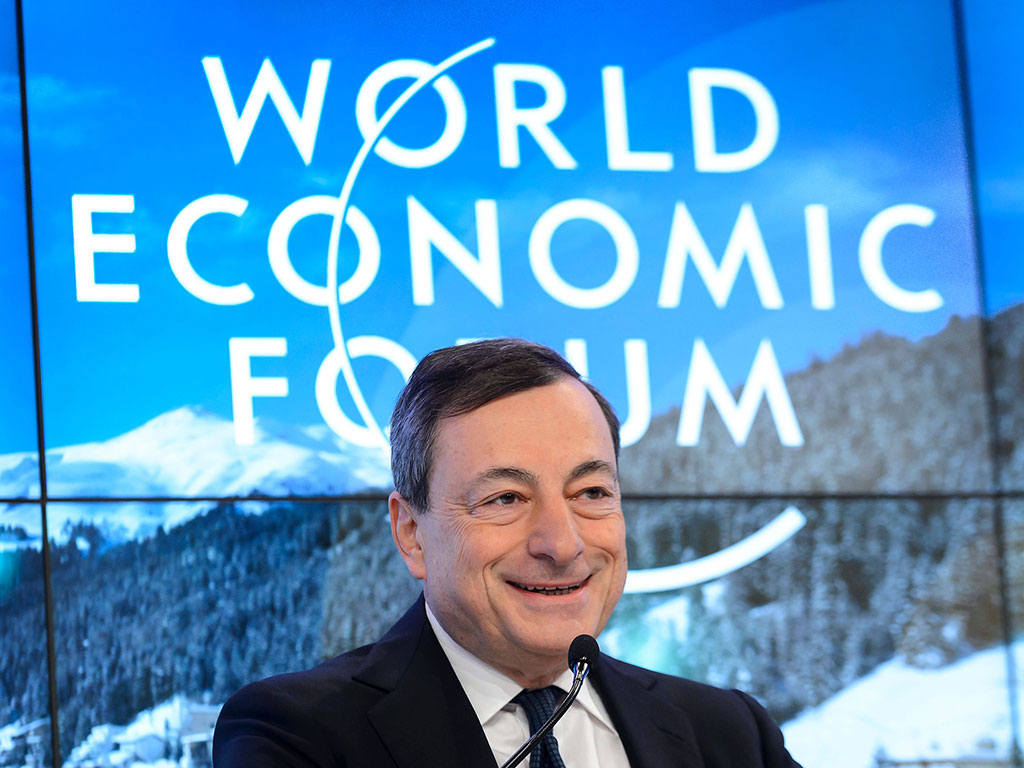
With the World Economic Forum’s annual meeting in Davos in full swing, European Central Bank President Mario Draghi spoke to Financial Times editor, Lionel Barber, on January 22, about the rate of European recovery and the challenges facing the year ahead.
When asked about the changing economic sentiment already experienced this year, Draghi agreed that there was indeed a “heightened sensitivity to risk”, that the European recovery continues at a modest, but regular, pace, which is largely driven by consumption. Other drivers include monetary policy and low oil prices, which in turn support real disposable income. “The overall stance of fiscal policy in the euro area has become broadly neutral, if not slightly expansionary”, which should ensure a continuation of the recovery, Draghi explained.
Draghi also commented on the misalignment between American monetary policy on the one hand, and European and Japanese monetary policy on the other, which is simply a natural reflection of the different stages in their respective recoveries. And, as the US is at a more advanced point, it will indeed continue on a diverging path for some time, as is reflected in differing interest rates.
Europe’s inflation rate on the other hand is less optimistic – this, Draghi explained, can be attributed to the collapse in oil prices, which has caused downward forecasts for emerging markets and has negatively impacted commodity prices. And with oil prices dropping even further than expected, the rate of inflation in 2016 could be significantly lower than the one percent recently predicted.
The ECB president also discussed the weakened inflation outlook at a news conference on January 21, during which Draghi suggested that further stimulus measures could be introduced in March.
He was also quizzed about the refugee crisis and the impact that it will have on Europe. “What the refugees are for Europe is both a challenge and an opportunity”, Draghi told the audience. “It would be foolish to ignore the size, the extent of the challenge. Our society will be changed by this. In which direction? We can only guess. It is also premature to know how long it will take to transform this challenge into an opportunity.”
“But, if there is determination and confidence, that’s the most important thing, because the size of the challenge could actually undermine the confidence and make fear prevail over any other consideration. And then the challenge is lost – I don’t think we are there, actually we are all working to make it into an opportunity.”
Draghi suggested that the expenditure needed to cope with the crisis may be the largest public investment project in Europe for several years, and so could very well act as an extra stimulus for much-needed growth in the region.

